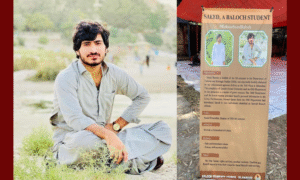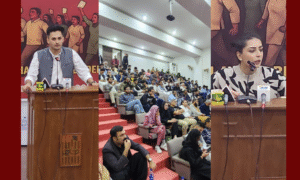Munir Uddin
The withdrawal of US forces from Afghanistan is likely to push the region into civil war just as it happened in the 1990s following the defeat of the USSR. The power vacuum created by the withdrawal of the US has given rise to power struggle in the region between different stakeholders—especially Afgan government and Taliban—to fill the created void. Many regional powers are also pressing to benefit from the prevailing situation in Afghanistan; attempts are being made to install the regime of their favourite in Afghanistan. These interventions from the regional powers, not to solve the problems of Afghanistan but to benefit from it, seem to revive the old terminologies: “Great Game” and“Strategic Depth”.
As the situation in Afghanistan aggravates, the contradictory position of Pakistan concerning Afghanistan is becoming more evident. Pakistan’s current stance on Afghanistan is dwindling between two extremes: on one hand it overtly displays itself as a facilitator and not a guarantor of peace—with no intentions of intervention in Afghanistan—and on the other hand, covert moral support and sympathy is being extended to the Taliban. The entire state apparatus has been employed to create the soft image of Taliban which inevitably points to the fact that Pakistan too has favourites in Afghanistan. Interestingly, this creation of a soft image of the Taliban started even before the withdrawal of US forces. The interview given by Shah Mahmood Qureshi to Afghan journalist and his reluctance to call Osama Bin Laden a terrorist and at the same time his praises for Taliban, support Pakistan’s tilt towards the Taliban.
Now the process of legitimising the Taliban has reached to such a great extent that their alleged victories in Afghanistan are glorified on media and they are invited on National TV—which is, nowadays, unreachable place for many opposition leaders—to propagate their views. Amid these developments, the removal of Malala’s picture from the one of the textbooks appears to be nothing but a policy to appease the Taliban.
Pakistan’s current position on Afghanistan and its support for the Taliban are likely to bring back the disastrous events of the 1990s which were the product of Talibanisation and indoctrination of extremist ideologies. The very proxies which aimed at routing the Soviets from Afghanistan started to be used against Pakistan itself following the disintegration of the USSR. The whole process of Talibanisation and the propagation of extremist ideologies wreaked havoc on our tribal areas and destroyed the very fabric of tribal society. Today after three decades of that experience we have not been able to root out extremism and terrorism from our country not to mention the loss of life and property and the destruction of educational institutions.
In the last instance, what in all these developments, has been forgotten or not taken into account is the populace of Afghanistan; what the people of Afghanistan want has been dominated and blurred by the interventionist approach from regional powers and the exaggerated victories of the Taliban. Their voices have always been silenced and Afghanistan has always been taken as an empty playing ground—without people—reserved for the regional powers to play their great games.
Afghanistan has, for most of the time, been a war-torn country yearning for political stability. Unfortunately, other countries, including Pakistan, have used Afghanistan for their own benefits and the wishes of the inhabitants of that war-stricken country have never been the priority of these powers. The emergence of and the capturing of power in Afghanistan by the Taliban was a by-product of Cold War politics. Taliban rule not only halted the progress of Afghanistan but turned it in a completely opposite direction. Their government proved disastrous for Afghan women; they were barred from getting education, a particular dress code was imposed on them and they could not even go to the market without male guardians.
Now, again, a civil war-like situation seems to be emerging in Afghanistan and the people of Afghanistan are likely to face another disastrous consequence of politics of great powers. It is being reported that the Taliban have started applying their authoritarian and regressive rules on the people in their captured territories. This is a crucial time for Afghanistan and the world powers—especially the neighbouring countries—should give up their proxy wars and come out to support the people of Afghanistan in fighting extremism and establishing a country based on democratic principles.
The Students’ Herald News Desk focuses on reporting the latest news regarding student politics and campus updates to you.
The News Desk can be reached at admin@thestudentsherald.com




